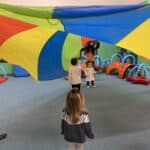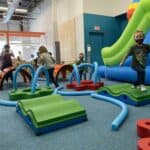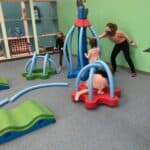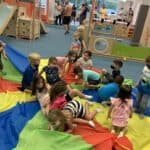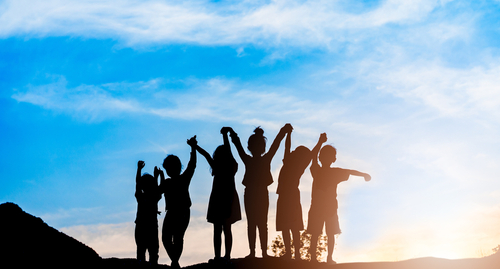
Playtime is an integral part of childhood. Whether it’s building a tower with blocks or playing a team sport, children learn the art of collaborating, compromising, and respecting others’ ideas. Children engage in various forms of play, from imaginative play to physical activities, and these moments of fun and laughter are not just for entertainment purposes. In fact, play is essential for the development of social skills in children. This article explores the power of play in cultivating these crucial skills that will benefit children throughout their lives.
1. Introduction to Social Skills Development through Play
Social skills are the abilities that enable individuals to interact effectively with others. Some of these skills include communication, empathy, cooperation, problem-solving, and conflict resolution. Play provides a natural and enjoyable context for children to learn and practice these skills. Whether it’s through group play, role-playing, or engaging in pretend scenarios, children learn how to navigate social situations and develop a strong foundation for their social interactions.
2. Communication Skills: Listening and Speaking
One of the key social skills that children develop through play is communication. During playtime, children are constantly engaging in conversation, both as leaders and followers. They learn how to listen to others’ ideas, take turns, and express their thoughts and emotions effectively. Whether it’s negotiating roles in a game or discussing rules, communication becomes an essential tool for successful play. By honing these skills, children are better equipped to communicate their thoughts and feelings in various social settings.
3. Empathy and Perspective-Taking
Empathy, the ability to understand and share others’ feelings, is another crucial social skill that children develop through play. Pretend play, in particular, allows children to put themselves in others’ shoes and understand different perspectives. Whether they are playing house, school, or a superhero game, children learn about empathy by taking on different roles and understanding the emotions and motivations of their peers. This skill is invaluable as it helps children build positive relationships and be more considerate of others’ needs and feelings.
4. Cooperation and Teamwork
Play teaches children the importance of teamwork and cooperation. In many games, especially those played in groups, children must work together, share responsibilities, and collaborate to achieve a common goal. Whether it’s building a tower with blocks or playing a team sport, children learn the art of collaborating, compromising, and respecting others’ ideas. These experiences not only teach them the value of teamwork but also provide them with strategies to work effectively in groups, a skill that will prove crucial in future endeavors.
5. Problem-Solving and Decision-Making
Playtime offers children ample opportunities to confront and solve problems. It could be finding a solution when the rules of a game are in dispute or determining how to overcome a challenge in an imaginative scenario. Through play, children learn to analyze situations, evaluate options, make decisions, and implement solutions. These problem-solving skills are essential in navigating social and academic challenges, helping children become more independent and confident in their abilities to resolve conflicts and make sound choices.
6. Conflict Resolution and Emotional Regulation
Another vital social skill that children gain through play is conflict resolution. Interacting with peers in a playful setting allows children to experience conflicts and disagreements, providing them with opportunities to learn how to manage and resolve these conflicts effectively. From negotiating the rules of a game to handling conflicts over sharing toys, children learn how to compromise, take turns, and find peaceful resolutions. Additionally, play also helps children develop emotional regulation skills. They learn to cope with frustration, anger, and disappointment, and understand how to express their emotions appropriately.
The Importance of Play for Social Skills Development
Playtime is not just about having fun; it serves a critical purpose in the development of social skills in children. Through play, children learn and practice communication, empathy, cooperation, problem-solving, conflict resolution, and emotional regulation skills. Fostering these skills at a young age lays a strong foundation for healthy and positive social interactions throughout their lives. Therefore, it is essential to prioritize and encourage ample playtime, ensuring that children have the space and opportunity to cultivate these powerful social skills.
Need an Indoor Playground in Livingston, NJ?
Exceptional Explorers is an indoor play space offering open play, birthday parties, and Remote Learning Support during this challenging time for parents. We also offer a parents lounge where parents can relax and socialize, or catch up on work while kids play. We have play areas appropriate from about 6 months through early elementary school age children. The space was designed to promote speech and motor development through play with interactive elements for children of all ages. We offer a great selection of varying birthday party packages that are easy to tie in with your child’s current interests. Due to current capacity restrictions and the need for rigorous cleaning, we are offering our open play as limited capacity time slots. Contact us today to learn more about what we can do for you!


